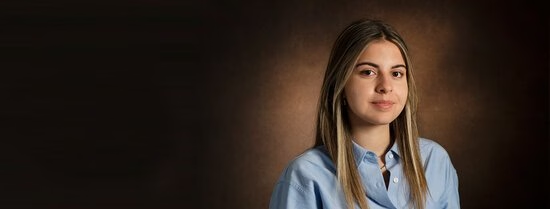In this programme you will get acquainted with the ideas of great thinkers from the past, from Plato to Marx, from Aristotle to Wittgenstein. In courses on modern philosophy fundamental philosophical and scientific questions will be addressed. What is truth? What is knowledge? What is science? Is democracy the best form of government? We also deal with more concrete ethical issues from a philosophical point of view, for instance: does an alcoholic always deserve a liver transplantation?
In addition, you will also focus on the application of mathematical and statistical techniques to answer economic questions. The small-scale teaching approach at Erasmus School of Economics, with tutorial groups of 20 students, allows for individual attention and intensive guidance. During many of the practical assignments, you will work in groups of around four students. Please check the section on the bachelor Econometrics and Operations Research or the bachelor Econometrie en Operationele Research for more specific information on the econometrics programme
The academic year is divided into five eight-week blocks, in which you follow two courses.
The first year: the basis for econometrics
When choosing for the Double bachelor in Econometrics and Philosophy of Econometrics, the curriculum of the first year consists of courses in mathematics, statistics, economics and computer programming. You will attend lectures, tutorials and work groups in which you practice and discuss the material with fellow students. Each course is concluded with an exam.
The second year: adding introductory philosophy
In addition to the regular econometrics curriculum, you will follow two introductory philosophy courses in the first ten weeks of the academic year. The first course, The Early Enlightenment, runs from week 36 until 39 with exams in week 40. The second course, The Quest for Man I, will be taught from week 41 until 44, with exams in week 45.
The third year: a mixture of both
In the third year you also follow the regular econometrics curriculum. On top of that, you attend introductory philosophy courses in the first ten weeks of the academic year. The first course, Essential Contemporary Challenges, runs from week 36 until 39, with exams in week 40. The second course, Thought Experiments, will be taught from week 41 until 44, with exams in week 45. You will also follow the courses Philosophy of Science I and II, and Technology and Social Change, which may count as a minor for the Econometrics programme as well.
Fourth year: advanced philosophy
The fourth year of your Double bachelor in Econometrics and Philosophy of Econometrics will consist solely of advanced philosophy courses, divided into four blocks per year. Each block runs for 10 weeks and lectures will mainly be given in the evening hours. In total the fourth year contains 60 credits. The fourth year includes advanced courses on the history of thought, the philosophical aspects of man and culture and social and political philosophy. You will write your thesis in the course of this final year under close supervision of a staff member.
In class
All economic and econometric issues also have a philosophical component. In a number of courses students will get involved in thought experiments. A wide variety of topics are analytically discussed, focusing on conceptual analysis. You could think of topics such as the existence of God, skepticism, the mind-body problem, moral responsibility, ethics or politics. Students reflect critically on the powers and limits of the capacity of our minds. Moreover, they develop the academic skills to put ‘thought experimentation’ into practice: to use their own imagination and creativity for scientific and philosophical purposes.
In addition, you might encounter a question such as the one below in your econometrics classes.
The current 100m world record is 9.58 for men (Usain Bolt) and 10.49 for women (Florence Griffith- Joyner). Can you predict the next world record? You will need a model for this purpose, using the following data.
MEN WOMEN |
|---|
Year Time Year Time |
1968 9.95 1968 11.08 |
1983 9.93 1972 11.07 |
1988 9.92 1976 11.04 |
1991 9.90 1976 11.01 |
1991 9.86 1977 10.88 |
1994 9.85 1982 10.88 |
1996 9.84 1983 10.81 |
1999 9.79 1983 10.79 |
2007 9.74 1984 10.76 |
2008 9.72 1988 10.49 |
2008 9.69 |
2009 9.58 |
International character and language
You are introduced to opportunities to have debates and discuss a wide range of (controversial) topics with students from different cultural and academic backgrounds. In this international and interdisciplinary environment a lively philosophical community emerges in which all students partake.
For Dutch students interested in this programme, please note that all lectures and seminars of the philosophy programme are in English. Examinations may also be answered in Dutch. Depending on the subject matter, it is also allowed to write a thesis in Dutch. For Econometrics you can choose the Bachelor Econometrics and Operations research or the Dutch equivalent Econometrie en Operationele Research. The latter will be taught in Dutch during the first year, but all your books will be in English. During the second year there will be a few courses in English and by the third year the entire programme will be in English.
